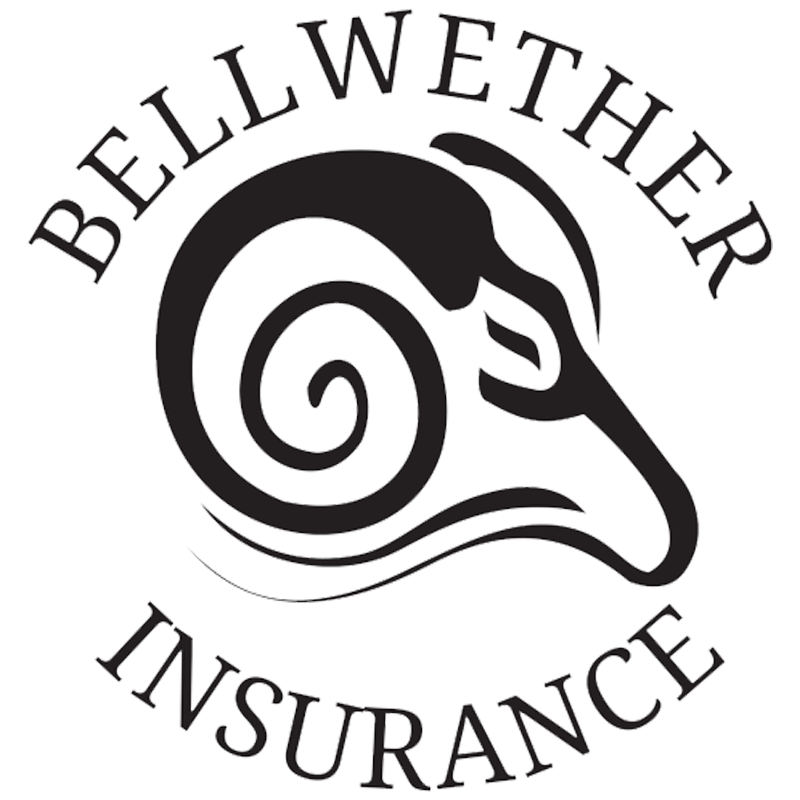Ohio Family Practice Business Insurance

Index
Contact Us
Phone
216-600-2828
Location
100 N. Center Street PO Box 627 LaGrange, OH 44050
Running a family practice in Ohio involves navigating a myriad of responsibilities, not least of which is ensuring that your business is adequately protected. This article aims to provide essential information about business insurance tailored specifically for family practices in Ohio.
Understanding the Basics of Business Insurance
Business insurance is designed to protect your practice from unforeseen events that can disrupt operations and lead to financial loss. Understanding the fundamentals of business insurance is critical for any family practice owner who wishes to safeguard their investment.
Importance of Business Insurance for Family Practice
Having robust business insurance is vital for family practices for various reasons. It not only protects the physical assets of the practice but also offers liability coverage in case of lawsuits. In the highly regulated field of healthcare, where the risk of malpractice is ever-present, insurance becomes a safety net for practitioners.
Moreover, business insurance supports continuity. In the event of a natural disaster or a significant incident such as a fire, having the right coverage ensures that you can resume operations quickly, protecting both your revenues and your reputation. This continuity is not just about financial stability; it also reassures your patients that their care will not be interrupted, fostering trust and loyalty within the community you serve.
Types of Business Insurance
Family practices typically require several types of business insurance, including:
- General Liability Insurance: This covers basic claims involving bodily injury or property damage.
- Professional Liability Insurance: Also known as malpractice insurance, this is crucial for healthcare providers to protect against claims of negligence.
- Property Insurance: This insurance safeguards the physical assets of your practice, including medical equipment, office space, and furniture.
- Workers' Compensation Insurance: This covers medical costs and lost wages for employees who are injured in the course of their employment.
- Business Interruption Insurance: This provides financial support in the event that your practice has to close temporarily due to a covered event.
Understanding these types helps to build a comprehensive insurance plan tailored to your practice’s specific risks and needs. Additionally, it’s essential to regularly review and update your insurance coverage to reflect any changes in your practice, such as the addition of new services, changes in staff, or upgrades to your facilities. This proactive approach not only ensures that you are adequately covered but also helps you stay informed about the evolving landscape of business insurance, including any new regulations or emerging risks that could impact your practice.
Furthermore, engaging with an insurance professional who specializes in healthcare can provide invaluable insights. They can help you navigate the complexities of insurance policies, ensuring that you select the right coverage options that align with your practice's unique challenges. This partnership can also lead to discovering potential discounts or bundled policies that can save you money while enhancing your coverage, allowing you to focus more on providing quality care to your patients rather than worrying about the financial implications of unforeseen events.

Ohio has specific regulations that govern business insurance. Familiarizing yourself with these can save time and prevent complications in the future.
State Requirements for Business Insurance
In Ohio, while there isn't a one-size-fits-all requirement for business insurance, certain types of coverage are mandatory. For instance, workers' compensation insurance is required if you have employees. Additionally, depending on the type of medical services provided, malpractice insurance is not legally mandated but is highly advised.
It’s also important to check local regulations in your city or county that may impose additional requirements. Being aware of these regulations will help ensure that your business remains compliant. Moreover, some industries may have specific insurance needs, such as general liability insurance for contractors or commercial auto insurance for businesses that utilize vehicles for operations. Understanding these nuances can significantly impact your risk management strategy and overall business health.
Consequences of Non-Compliance
Failing to meet Ohio's requirements for business insurance can lead to severe penalties. Not only could you face financial repercussions in the form of fines, but your ability to operate your practice could be jeopardized. In extreme cases, non-compliance can result in legal action against your business.
Furthermore, lacking necessary coverage leaves your practice vulnerable to financial distress in the wake of an incident, which could ultimately lead to closure. Protecting your practice with the right insurance is not just a regulatory issue; it's a financial strategy to ensure long-term stability. Additionally, the reputational damage from being non-compliant can deter potential clients or customers, as trust is a crucial element in business relationships. Establishing a solid insurance foundation not only safeguards your assets but also enhances your credibility in the marketplace, creating a more secure environment for growth and success.
Choosing the Right Business Insurance for Your Family Practice
Selecting the appropriate business insurance can be a daunting task given the numerous options available in the market. Understanding your practice's needs is essential in making an informed decision.
Evaluating Your Practice's Insurance Needs
Every family practice is different, and so are its insurance needs. Begin by assessing your unique risks, which may vary based on your location, specialty, and size of your practice.
Consider the types of services you offer and the demographics of your patients. For instance, practices that perform high-risk procedures may require more extensive coverage than those focusing solely on preventive care. Consulting with an insurance advisor can also provide insights into your specific needs.
Additionally, it’s important to think about the potential liabilities associated with your practice. For example, if your family practice is located in an area prone to natural disasters, you may want to include coverage for property damage caused by such events. Similarly, if you employ a team of healthcare professionals, consider the implications of professional liability insurance, which can protect against claims of negligence or malpractice. This comprehensive approach ensures that you are not only safeguarding your assets but also protecting your professional reputation.
Comparing Insurance Providers and Plans
Once you have a clear understanding of your requirements, the next step is to compare various insurance providers and plans. Pricing is an important factor, but it should not be the only criterion.
- Reputation: Research the provider’s reputation in the industry. Online reviews and testimonials can offer valuable insights.
- Coverage Options: Ensure the provider offers flexible policies that can be tailored to your practice’s unique needs.
- Customer Service: Consider the level of customer service provided, as you may need assistance when filing claims or modifying your policy.
Take the time to get quotes from multiple providers to ensure you’re getting the best deal, but don’t sacrifice quality for cost. Additionally, look for insurers that offer educational resources or workshops to help you understand the nuances of your policy. Some providers may even have dedicated teams that specialize in healthcare practices, which can be an invaluable resource as you navigate the complexities of business insurance. By engaging with these resources, you can gain a deeper understanding of your coverage options and make more informed decisions that align with your practice's long-term goals.
Managing Your Business Insurance Policy
Owning a business insurance policy is just the beginning; effectively managing it is crucial for maximized benefits and protection.
Regularly Reviewing and Updating Your Policy
Life circumstances change, and so do your business needs. It’s advisable to review your insurance policies at least once a year, or whenever there’s a significant change in your practice, such as an increase in staff or services offered.
This practice ensures that your coverage evolves alongside your business, protecting you from any gaps in coverage that could expose your practice to risk. Be proactive about contacting your insurer with updates, as failing to do so could lead to insufficient protection. Additionally, consider consulting with an insurance broker who can provide insights into the latest industry trends and coverage options that may better suit your evolving business model. They can help you navigate the complexities of different policies, ensuring you have the most comprehensive coverage tailored to your specific needs.
Claiming Insurance: Steps and Tips
If you find yourself in the unfortunate situation of needing to file a claim, knowing the process can greatly simplify matters. Start by documenting everything related to the incident, including photographs, witness accounts, and any relevant communication.
Next, contact your insurance company promptly. Familiarize yourself with their claims process – some insurers have specific timelines and forms that need to be followed. Be prepared to provide supporting documentation and answer any questions your insurer may have. Understanding the nuances of your policy can also be beneficial; for instance, knowing the difference between actual cash value and replacement cost can influence how you approach the claim. In some cases, it may be advantageous to seek legal advice, especially if the claim amount is significant or if you encounter resistance from your insurer.
Finally, keep records of all correspondences with your insurance provider throughout the claims process. This can be invaluable if discrepancies arise. Maintaining a detailed log of your interactions, including dates, times, and the names of representatives you spoke with, can strengthen your position should any disputes occur. Remember, the more organized and thorough you are, the smoother the claims process will likely be, allowing you to focus on getting your business back on track.

Frequently Asked Questions about Ohio Family Practice Business Insurance
In this section, we address some common questions regarding family practice business insurance in Ohio to provide further clarity and support to practice owners.
How Much Does Business Insurance Cost in Ohio?
The cost of business insurance in Ohio can vary significantly based on multiple factors, including the size of your practice, the types of coverage you choose, and the specific risks associated with your services. On average, family practice owners might pay between $1,500 and $3,000 annually. However, costs can be higher for practices offering more specialized services.
To get an accurate picture of what you should expect to pay, it’s best to request quotes from several insurance providers based on your specific circumstances. Additionally, consider working with an insurance broker who specializes in healthcare to help navigate the complexities of coverage options available to you. They can provide insights into which policies best align with your practice's needs and budget, ensuring you receive comprehensive protection without overspending.
Can I Operate without Business Insurance in Ohio?
While technically, you can operate without business insurance in Ohio, it is not advisable. Aside from legal penalties for failing to meet state requirements (like workers' compensation), operating without insurance exposes your practice to significant financial risks. A single lawsuit or major incident could potentially bankrupt your practice.
Investing in the right business insurance policy is crucial for safeguarding not just your business but also your peace of mind. It allows you to focus on providing quality care to your patients without the constant worry over potential liabilities. Moreover, many patients today expect healthcare providers to have adequate insurance coverage, as it reflects a commitment to professionalism and responsibility. Having robust insurance can also enhance your practice's reputation, instilling trust in your patients and their families.
Furthermore, it's essential to periodically review your insurance policy to ensure it evolves alongside your practice. As your family practice grows or changes, your insurance needs may also shift. Regularly assessing your coverage can help you avoid gaps that could leave you vulnerable in the event of an unexpected incident.


